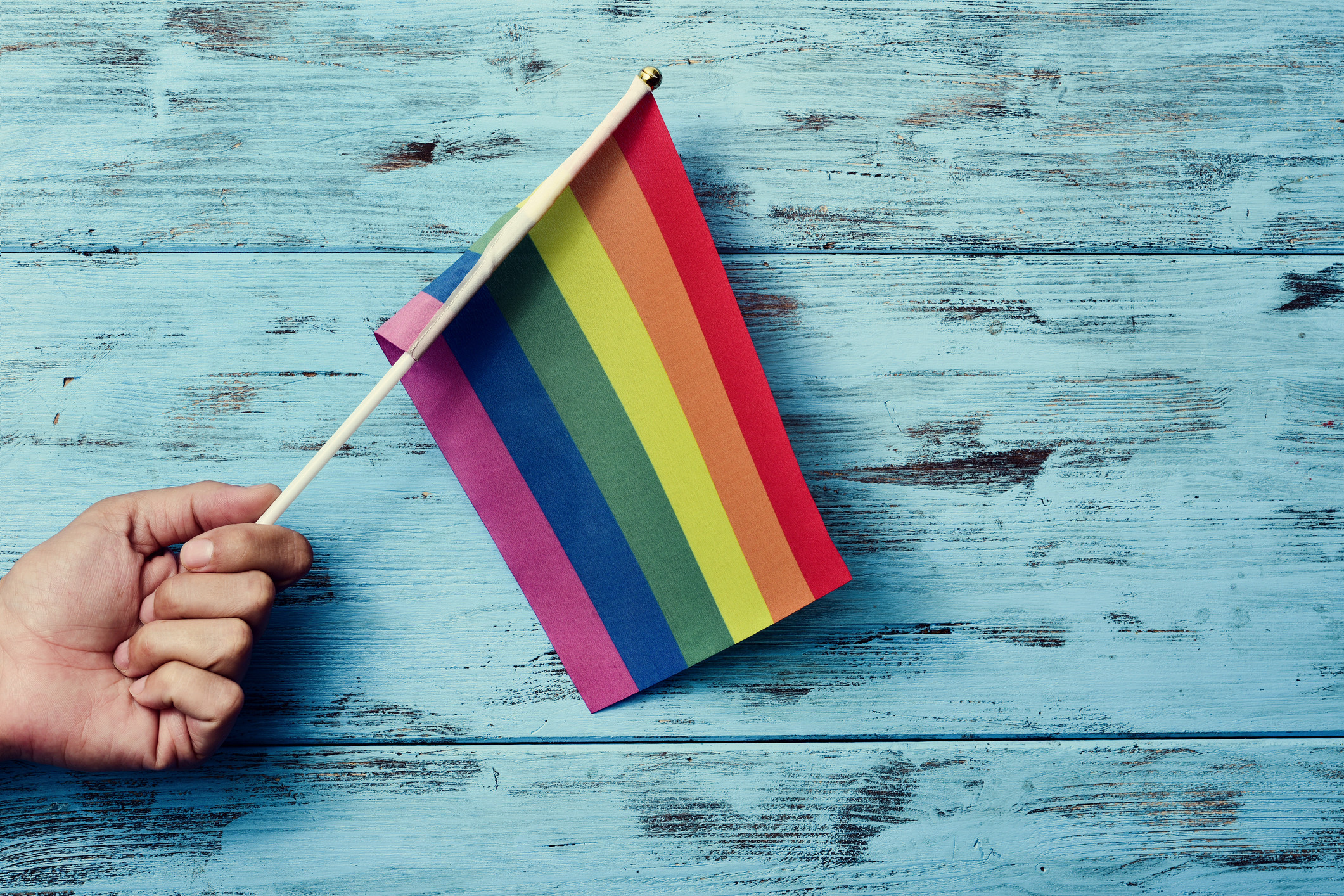What is Pride Month and why is it important?

A New York City police officer patrols outside the Stonewall Inn, during Pride Month in 2019.
Image: Reuters/Brendan McDermid
Stay up to date:
Parity and Inclusion
Listen to the article
This article was first published in June 2021 and was updated in June 2023.
- Pride Month is observed in June each year around the world.
- Its roots have been traced back to the 1969 Stonewall uprising in New York City.
- But the global struggle for LGBTI rights continues, with 64 countries still criminalizing 'consensual same-sex sexual acts'.
On a warm June night in 1969 something typical for the era happened, when police in New York City raided a popular gay bar. Something less typical followed: the gay patrons fought back.
The Stonewall uprising sparked several days of skirmishes between the police and gay, lesbian and transgender people weary of constant harassment that featured tear gas, a fire bomb, and kick lines. It's widely cited as the inspiration for what much of the world now celebrates as Pride Month every June.
The collective struggle for LGBTI rights predates Stonewall, however, and extends far beyond the borders of any single country.
Gay rights activism before Stonewall
A few years before Stonewall, the organization Personal Rights through Defense and Education (PRIDE) was founded in Los Angeles (it’s been cited as likely the first application the word “pride” to gay politics). Shortly after that a large LGBTI rights demonstration in 1967 followed the police raid of a Los Angeles gay bar called the Black Cat, which came after yet another Stonewall precursor, the 1966 Compton's Cafeteria riot in San Francisco.
Roughly 70 years earlier, Magnus Hirschfeld had founded a trailblazing gay rights organization in Berlin. He later co-wrote a film seen as a plea for the abolishment of Germany’s law prohibiting homosexuality, and fled the country before the Nazis destroyed his research institute and began forcing homosexuals imprisoned in concentration camps to wear the pink triangle that’s now a symbol of gay pride.
In the UK, the Buggery Act of 1533 made homosexuality punishable by death. The penalty shifted to imprisonment in the 19th century, and Oscar Wilde was famously jailed as a result. A few years before Stonewall, the Beaumont Society was established in the UK to support transgender rights, and in 1970 the Gay Liberation Front was founded in London.
In Brazil, the organization Grupo Gay da Bahia was founded in 1980 and has played a vital role in monitoring anti-gay and anti-transgender violence; in India, the first recorded protest for gay rights was held in Delhi in 1992 following instances of police harassment; and in France, where a 1960 indecency law was used to target gay people, the revolutionary fervour of 1968 – the year before Stonewall – included calls for the recognition of LGBTI rights.
Towards greater inclusion around the world
Roughly four years after Stonewall, the American Psychiatric Association relented to pressure and removed homosexuality from its list of official mental illnesses, marking a major turning point in the US for LGBTI rights.
In 2003, the US Supreme Court did away with sodomy laws in the country, and in 2015 the court ruled that all states must recognize same-sex marriages. Still, less than half of the country’s population lives in states where discrimination protection based on sexual orientation is offered in “broad terms,” according to the organization ILGA World.
In Germany, the law prohibiting homosexuality that Magnus Hirschfeld sought in vain to have overturned was finally abolished in 1994. In 2017, the German Parliament approved same-sex marriage.
Private homosexual acts between men were decriminalized in the UK in 1967. Same-sex marriage has been progressively legalized throughout the country over the past decade.
What is the Forum doing to boost inclusion for LGBTI people?
Brazil’s Supreme Federal Court ruled in 2019 that sexual orientation and gender identity should be included in the country’s anti-discrimination law, and the court’s made several other rulings strengthening LGBTI rights. The country legalized same-sex marriage in 2013.
India’s Supreme Court decriminalized consensual gay sex in 2018.
In France, where same-sex marriage has been legally recognized since 2013, Paris renamed a handful of central squares in 2019 to honour efforts to win LGBTI rights. Among the new names: Place des Émeutes-de-Stonewall.
The gay rights picture in 2023
As of 2023, 129 UN member state countries do not criminalize 'consensual same-sex sexual acts' while 64 countries still do.
In the past year, countries, including several in Africa, have decriminalized same-sex unions and improved rights for LGBTI people, according to the BBC.
This includes Singapore, whose parliament in December 2022 repealed a controversial law banning sex between men.
The high court in Barbados also scrapped laws banning same-sex acts in December.
And just after Pride Month, in July 2022, courts in Antigua and Barbuda found a law criminalizing same-sex acts between consenting adults unconstitutional.
Accept our marketing cookies to access this content.
These cookies are currently disabled in your browser.
Accept our marketing cookies to access this content.
These cookies are currently disabled in your browser.
Accept our marketing cookies to access this content.
These cookies are currently disabled in your browser.
Don't miss any update on this topic
Create a free account and access your personalized content collection with our latest publications and analyses.
License and Republishing
World Economic Forum articles may be republished in accordance with the Creative Commons Attribution-NonCommercial-NoDerivatives 4.0 International Public License, and in accordance with our Terms of Use.
The views expressed in this article are those of the author alone and not the World Economic Forum.
Forum Stories newsletter
Bringing you weekly curated insights and analysis on the global issues that matter.
More on Equity, Diversity and InclusionSee all
Silja Baller and Fernando Alonso Perez-Chao
July 11, 2025
Aarushi Singhania and Kiva Allgood
July 4, 2025
Abayomi Olusunle
July 1, 2025







